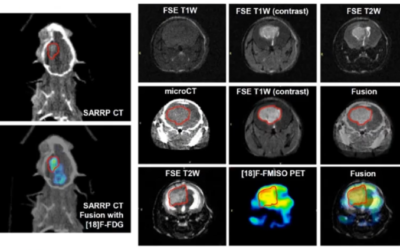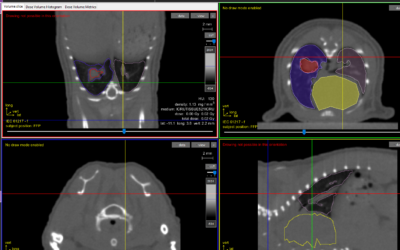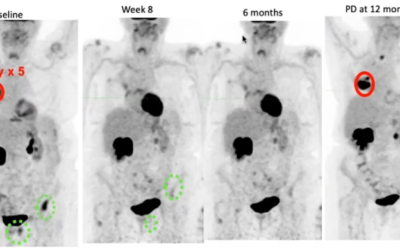Pancreatic ductal adenocarcinoma (PDAC) is characterized by a fibrotic stroma with a poor lymphocyte infiltrate, in part driven by cancer-associated fibroblasts (CAFs). CAFs, which express fibroblast activation protein (FAP), contribute to immune escape via exclusion of anti-tumor CD8+ T cells from cancer cells, upregulation of immune checkpoint ligand expression, immunosuppressive cytokine production, and polarization of tumor infiltrating inflammatory cells. FAP is a post-proline peptidase selectively expressed during tissue remodeling and repair, such as with wound healing, and in the tumor microenvironment by cancer-associated fibroblasts. We targeted FAP function using a novel small molecule inhibitor, UAMC-1110, and mice with germline knockout of FAP and concomitant knock-in of E. coli beta-galactosidase. We depleted CAFs by adoptive transfer of anti-βgal T cells into the FAP knockout animals. Established syngeneic pancreatic tumors in immune competent mice were targeted with these 3 strategies, followed by focal radiotherapy to the tumor. FAP loss was associated with improved antigen-specific tumor T cell infiltrate and enhanced collagen deposition. However, FAP targeting alone or with tumor-directed radiation did not improve survival even when combined with anti-PD1 therapy. Targeting of CAFs alone or in combination with radiation did not improve survival. We conclude that targeting FAP and CAFs in combination with radiation is capable of enhancing anti-tumor T cell infiltrate and function, but does not result in sufficient tumor clearance to extend survival.
Gunderson AJ, Yamazaki T, McCarty K, Phillips M, Alice A, Bambina S, Zebertavage L, Friedman D, Cottam B, Newell P, Gough MJ, Crittenden MR, Van der Veken P, Young KH.






